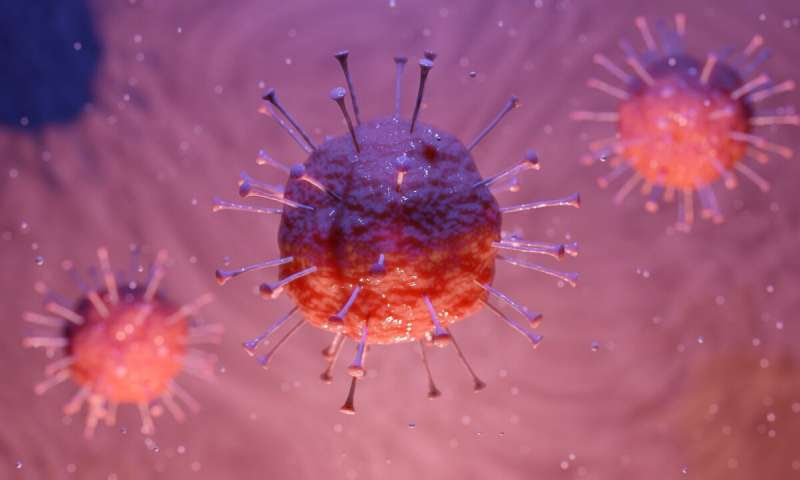by Krista Conger, Stanford University Medical Center
About one in five people with COVID-19 are also infected with other respiratory viruses, according to a preliminary analysis led by Ian Brown, MD, a clinical associate professor of emergency medicine at the Stanford School of Medicine.

In addition, the analysis found that about one in 10 people who exhibit symptoms of respiratory illness at an emergency department, and who are subsequently diagnosed with a common respiratory virus, are co-infected with the COVID-19 virus.
The findings challenge the assumption that people are unlikely to have COVID-19 if they have another type of viral respiratory disease.
“Currently, if a patient tests positive for a different respiratory virus, we believe that they don’t have COVID-19,” said Nigam Shah, MBBS, Ph.D., associate professor of medicine and of biomedical data science at the medical school. “However, given the co-infection rates we’ve observed in this sample, that is an incorrect assumption.”
Accurate and rapid testing for SARS-CoV-2, the virus that causes COVID-19, is necessary to identify those who are infected and slow the spread of the disease. Understanding the likelihood of co-infection is an important step in this process.
“Hospitals don’t have unlimited access to COVID testing,” Brown said . “In some cases, a patient with respiratory symptoms may first be tested for a non-COVID virus. If there is a diagnosis of influenza or rhinovirus, or other respiratory virus, a hospital may discharge the patient without COVID testing, concluding that the alternative diagnosis is the reason for the symptoms.”
Brown and his colleagues analyzed 562 people recently tested for COVID-19 at Stanford Health Care’s Marc and Laura Andreessen Emergency Department. Forty-nine of those people tested positive for infection with SARS-CoV-2.
Of the 562 people, 517 were also tested for the presence of other common respiratory viruses, such as influenza A and B, respiratory syncytial virus, rhinovirus, adenovirus and several types of pneumonia. One hundred and twenty seven received a positive result for one of these other respiratory viruses.
Of the people tested for both SARS-CoV-2 and other respiratory viruses, eleven people—or about 22% of the 49 confirmed COVID-19 cases and 8.7% of the 127 people with other respiratory viruses—were found to be co-infected with both kinds of viruses.
The researchers shared their findings March 18 on Medium.com, an online publishing platform, at the request of the California Department of Public Health.
As of March 29, there have been 136,880 confirmed or presumptive cases of COVID-19 in the United States, and 2,409 deaths resulting from the illness, according to the Coronavirus Resource Center at Johns Hopkins University. More than 33,500 people worldwide have died from the disease, which causes mild to severe respiratory illness. The disease is particularly dangerous for elderly people and those with pre-existing health conditions, including heart disease, diabetes and lung disease.

Leave a Reply